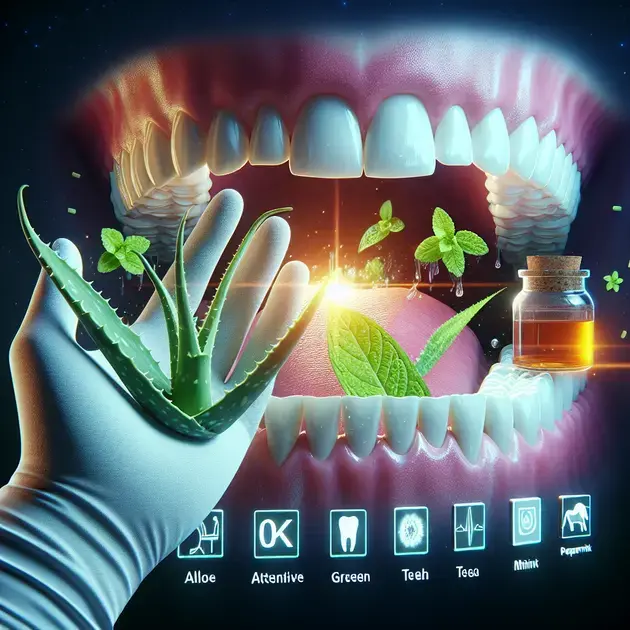When it comes to effectively treating periodontitis, finding the right medication is crucial. In this comprehensive guide, we will explore the most effective medications currently available for combating this common condition.
Periodontitis, a severe gum infection that can damage the soft tissue and destroy the bone that supports your teeth, requires targeted treatment to prevent further complications. By understanding the options for effective medication, you can take control of your oral health and prevent the progression of periodontitis.

Understanding the Role of Antibiotics in Periodontitis Management
Antibiotics play a crucial role in managing periodontitis by targeting and eliminating the harmful bacteria causing the infection in the gums. Before starting any antibiotic treatment for periodontitis, it is essential to consult with a dentist or periodontist to determine the most effective medication for the specific case.
One common antibiotic prescribed for periodontitis is Doxycycline, which helps reduce inflammation and control bacteria growth in the gums. The medication is usually taken in the form of pills, and the dosage and duration of treatment will be determined by the healthcare provider.
To access more information on antibiotic treatments for periodontitis, reputable sources like the American Academy of Periodontology website provide detailed insights into different types of antibiotics used in periodontal care and their effectiveness in managing the condition.
It is essential to follow the prescribed antibiotic regimen diligently, completing the full course as instructed by the healthcare provider. This helps prevent antibiotic resistance and ensures the best outcomes in managing periodontitis.
Regular dental check-ups and cleanings are also crucial in conjunction with antibiotic therapy to monitor the progress of treatment and adjust the medication plan if necessary.
Exploring the Benefits of Antimicrobial Mouthwash for Periodontitis
Antimicrobial mouthwash can be a valuable addition to the oral hygiene routine for individuals with periodontitis. These mouthwashes are specifically formulated to target and kill bacteria in the mouth, helping to reduce plaque buildup and prevent further infection in the gums.
When choosing an antimicrobial mouthwash for periodontitis, look for products containing active ingredients like chlorhexidine, which has been proven effective in combating bacteria associated with gum disease. Brands like Colgate and Listerine offer antimicrobial mouthwashes that are readily available in most pharmacies and supermarkets.
To ensure maximum benefits, it is essential to use the antimicrobial mouthwash as directed on the product label or as recommended by a dental professional. Most antimicrobial mouthwashes are used twice daily after brushing and flossing to achieve optimal results in controlling bacterial growth in the mouth.
For more in-depth information on the benefits of antimicrobial mouthwash for periodontitis, dental websites such as the American Dental Association (ADA) provide articles and guidelines on selecting the right mouthwash for gum disease management.
Incorporating antimicrobial mouthwash into a comprehensive oral care routine, including regular dental visits and proper brushing and flossing techniques, can significantly contribute to improving gum health and managing periodontitis.
The Potential of Prescription Medications for Severe Periodontal Disease
Prescription medications may be necessary for individuals with severe periodontal disease to effectively manage the condition and prevent further progression of gum and bone damage. These medications are typically prescribed by periodontists or dentists with specialized training in treating advanced gum disease.
One commonly prescribed medication for severe periodontal disease is Arestin, an antibiotic powder that is applied directly to the pockets around the teeth during a dental procedure. Arestin works locally to target and eliminate bacteria, promoting healing and reducing inflammation in the affected areas.
Patients with severe periodontal disease may also benefit from prescription-strength oral antibiotics, such as amoxicillin or metronidazole, to combat bacterial infections in the gums. These medications are typically prescribed for a specific duration and must be taken according to the healthcare provider’s instructions.
Websites like WebMD and the Mayo Clinic offer valuable insights into prescription medications used for severe periodontal disease, detailing their mechanisms of action and potential side effects that patients should be aware of when undergoing treatment.
In addition to prescription medications, individuals with severe periodontal disease may require surgical interventions like scaling and root planing or periodontal flap surgery to remove deep-seated bacteria and restore gum health. Combining medication with professional dental treatments is essential for effectively managing severe periodontal disease and preventing tooth loss.

Understanding the Science Behind Gum Disease Medications
Gum disease medications play a crucial role in combating periodontal infections and maintaining oral health. These medications are designed to target the underlying causes of gum disease, such as bacterial infections and inflammation. By understanding the science behind these medications, we can appreciate their effectiveness in treating gum disease.
One common type of gum disease medication is antiseptic mouthwash, which contains ingredients that kill bacteria in the mouth. These mouthwashes are often prescribed to patients with gingivitis or early-stage gum disease to help reduce plaque and prevent further infection.
In more severe cases of gum disease, antibiotics may be prescribed to target specific strains of bacteria causing the infection. These antibiotics can be taken orally or applied directly to the gums in the form of gels or creams. By targeting bacterial infections, these medications help to eliminate the source of the problem and promote healing.
Another approach to treating gum disease is anti-inflammatory medications, which help reduce swelling and irritation in the gums. These medications can be in the form of pills, mouth rinses, or gels and are often used in conjunction with other treatments to manage gum disease effectively.
Overall, the science behind gum disease medications is focused on targeting the root causes of the infection, such as bacteria and inflammation, to promote healing and improve oral health.
Innovative Approaches: Targeting Bacterial Infections in Periodontitis Treatment
When it comes to treating periodontitis, innovative approaches that target bacterial infections are crucial for successful outcomes. Periodontitis is a more advanced form of gum disease that requires specialized medications to address the specific bacteria causing the infection.
One innovative approach is the use of targeted antibiotic therapy, where antibiotics are delivered directly to the pockets of infection in the gums. This localized treatment helps to kill the harmful bacteria while minimizing the impact on beneficial bacteria in the mouth.
Another approach to targeting bacterial infections in periodontitis treatment is the use of probiotics. Probiotics are beneficial bacteria that help restore balance in the oral microbiome, reducing the growth of harmful bacteria that contribute to gum disease.
In addition to traditional antibiotics, new research is focusing on the development of novel antimicrobial agents that specifically target the strains of bacteria associated with periodontitis. These medications aim to provide more effective and targeted treatment options for individuals with severe gum disease.
By exploring these innovative approaches to targeting bacterial infections in periodontitis treatment, healthcare providers can offer more personalized and effective solutions for patients battling advanced gum disease.
A Comprehensive Overview of Alternative Medications for Gum Disease
While traditional gum disease medications are effective, alternative medications can also play a significant role in managing and treating gum disease. These alternative medications offer natural and holistic approaches to oral health that can complement conventional treatments.
One popular alternative medication for gum disease is herbal mouthwashes, which contain natural ingredients with antimicrobial properties. These mouthwashes can help reduce plaque buildup and soothe inflamed gums without the use of synthetic chemicals.
Homeopathic remedies, such as essential oils and herbal supplements, are also gaining popularity as alternative medications for gum disease. These natural remedies can help alleviate symptoms of gum disease and promote overall oral health without the side effects of traditional medications.
Dietary supplements, such as vitamin C and Coenzyme Q10, are another alternative medication option for gum disease. These supplements can support gum health and strengthen the immune system, helping the body fight off infections and promote healing in the gums.
By providing a comprehensive overview of alternative medications for gum disease, individuals can explore different treatment options and find the best approach that aligns with their preferences and values for oral health.
Conclusion
In conclusion, understanding the science behind gum disease medications is crucial for effectively combating periodontal infections and promoting oral health. These medications target the root causes of gum disease, such as bacterial infections and inflammation, to facilitate healing and improve overall oral health. By utilizing antiseptic mouthwashes to kill bacteria, antibiotics to target specific strains, and anti-inflammatory medications to reduce swelling, healthcare providers can offer comprehensive treatment options for patients at different stages of gum disease.
Moreover, innovative approaches like targeted antibiotic therapy and probiotics play a key role in addressing bacterial infections in periodontitis treatment. These specialized medications help kill harmful bacteria while preserving the balance of beneficial bacteria in the oral microbiome. The development of novel antimicrobial agents tailored to specific bacterial strains associated with periodontitis offers promising treatment avenues for individuals with severe gum disease, providing personalized and effective solutions for their oral health needs.
Additionally, alternative medications such as herbal mouthwashes, homeopathic remedies, and dietary supplements offer natural and holistic approaches to managing gum disease. These alternatives can complement traditional medications by reducing plaque buildup, soothing inflamed gums, and supporting gum health through essential nutrients. By offering a comprehensive overview of alternative medications, individuals can explore diverse treatment options that align with their preferences and values, empowering them to make informed decisions about their oral health.



